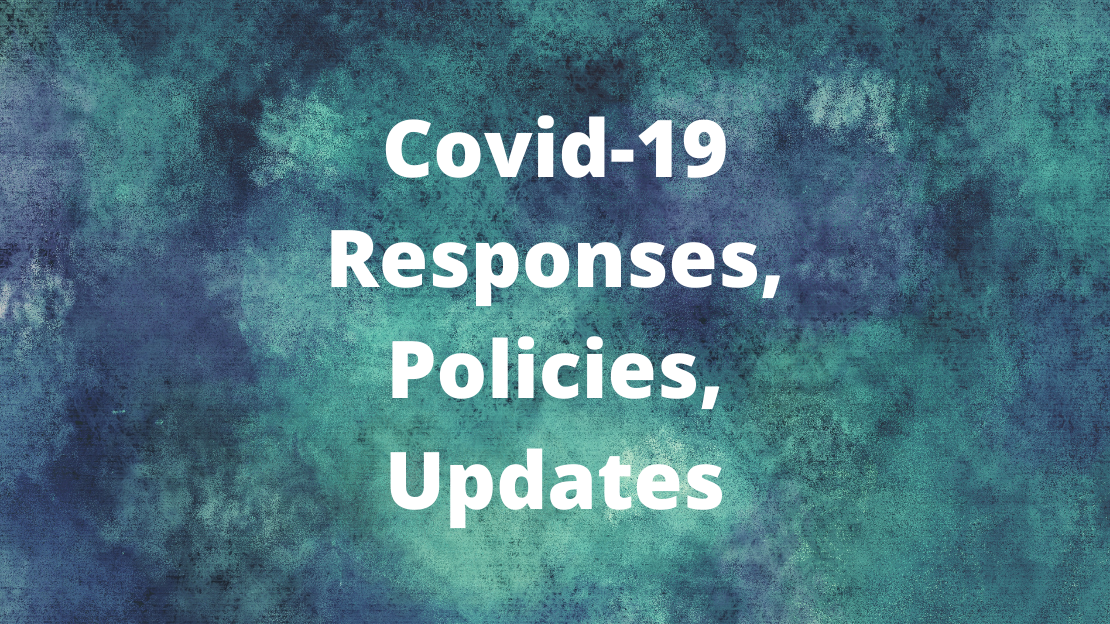
GSLC Covid-19 Health Guidelines
NOTE: For information about guidelines that will be used to determine when to begin or suspend in-person worship, click here. This will take you to a PDF with this information.
Watch a video about these health guidelines on Vimeo
Watch a video about these health guidelines on YouTube
COVID-19 is spreading in communities across Virginia, and it is impossible to eliminate the risk of contracting the virus entirely if you are around other people. For this reason, the Virginia Department of Health strongly advises all Virginians to stay home as much as possible, especially if you are at higher risk of becoming seriously ill with COVID-19.
Who is considered to be at higher risk?
According to the Centers for Disease Control (CDC), the following groups are at higher risk of severe illness if they become ill with COVID-19. “Severe illness” means that the person with COVID-19 may require hospitalization, intensive care, or a ventilator to help them breathe, or they may even die.
- Older adults. Among adults, the risk for severe illness from COVID-19 increases with age, with older adults being at highest risk.
- People who live in a nursing home or long-term care facility.
- People of any age with the following conditions:
- Chronic kidney disease
- COPD (chronic obstructive pulmonary disease)
- Immunocompromised state (weakened immune system) from solid organ transplant
- Obesity (body mass index [BMI] of 30 or higher)
- Serious heart conditions, such as heart failure, coronary artery disease, or cardiomyopathies
- Sickle cell disease
- Type 2 diabetes mellitus
If you are at higher risk…
FOR YOUR SAFETY DURING THIS PANDEMIC, PLEASE CONSIDER ATTENDING THE VIRTUAL SERVICE (i.e., not the in-person service) IF YOU ARE AT HIGHER RISK FOR SEVERE ILLNESS FROM COVID-19. Consult your health-care provider to review your individual situation and precautions recommended, given your personal health history.
Who might be at increased risk?
According to the Centers for Disease Control (CDC), people with the following conditions might be at an increased risk for severe illness from COVID-19. “Severe illness” means that the person with COVID-19 may require hospitalization, intensive care, or a ventilator to help them breathe, or they may even die.
- Asthma (moderate-to-severe)
- Cerebrovascular disease (affects blood vessels and blood supply to the brain)
- Cystic fibrosis
- Hypertension (high blood pressure)
- Immunocompromised state (weakened immune system) from blood or bone marrow transplant, immune deficiencies, HIV, use of corticosteroids, or use of other immune-weakening medicines
- Neurologic conditions, such as dementia
- Liver disease
- Pregnancy
- Pulmonary fibrosis (having damaged or scarred lung tissues)
- Smoking
- Thalassemia (a type of blood disorder)
- Type 1 diabetes mellitus
If you might be at increased risk…
FOR YOUR SAFETY DURING THIS PANDEMIC, PLEASE CONSIDER ATTENDING THE VIRTUAL SERVICE (i.e., not the in-person service) IF YOU ARE AT INCREASED RISK FOR SEVERE ILLNESS FROM COVID-19. Consult your health-care provider to review your individual situation and precautions recommended, given your personal health history.
What if I have been exposed or have COVID-19 symptoms?
FOR YOUR SAFETY AND/OR THAT OF OTHERS, DURING THIS PANDEMIC PLEASE ATTEND THE VIRTUAL SERVICE (i.e., not the in-person service) IF ANY OF THESE APPLY TO YOU:
- You currently are sick with COVID-19 or tested positive for COVID-19 or have symptoms indicative of COVID-19. See list of symptoms below.
- You have a household member or you are the caretaker or you are in close contact with people that are at high risk for complications (i.e., if you were to become infected with the virus, there are people you live with or under your care who could be put in serious danger).
- You have been exposed in the last 14 days to someone with a COVID-19 diagnosis or someone who had symptoms highly indicative of COVID-19, even if they tested negative. See list of symptoms below.
- If you have traveled to a high-risk area or you have been on a cruise in the last 14 days.
What are some symptoms of COVID-19?
- Fever or chills
- Cough
- Shortness of breath or difficulty breathing
- Fatigue
- Muscle or body aches
- Headache
- New loss of taste or smell
- Sore throat
- Congestion or runny nose
- Nausea or vomiting or diarrhea
What if I have had COVID-19?
If you have had COVID-19 already or have had symptoms indicative of it (see list of symptoms, above), please follow CDC guidelines and consult your healthcare provider to determine when it is safe for you to be around others again.
Protocols for anyone planning to attend an in-person service
Out of respect for the staff and fellow members, when attending an in-person service please adhere to the following protocols.
- Wear a face covering that fully covers your mouth and nose.
- Wash your hands for at least 20 seconds with soap and water or use hand sanitizer (at least 60% alcohol) when you arrive at an event and frequently while you are there.
- Maintain social distance (6 feet) from people who do not live with you. Avoid hand shaking, hugging, or physical contact with people who do not live with you.
- Do not touch your face (eyes, nose, or mouth especially) without washing your hands or using hand sanitizer first.
- Avoid touching surfaces when possible (i.e., use a paper towel or elbow to open doors and faucets, keep hands to yourself, etc.). If you have to touch a surface, wash or sanitize your hands afterward.
Sources
From the Centers for Disease Control
https://www.cdc.gov/coronavirus/2019-ncov/if-you-are-sick/end-home-isolation.html
https://www.cdc.gov/coronavirus/2019-ncov/need-extra-precautions/older-adults.html
https://www.cdc.gov/coronavirus/2019-ncov/need-extra-precautions/people-with-medical-conditions.html
https://www.cdc.gov/coronavirus/2019-ncov/prevent-getting-sick/prevention.html
